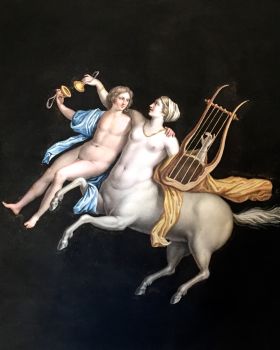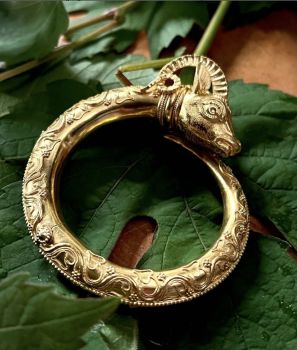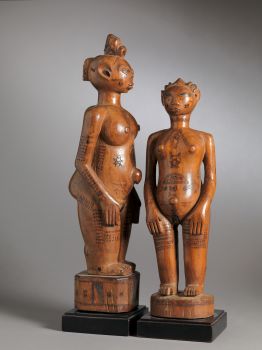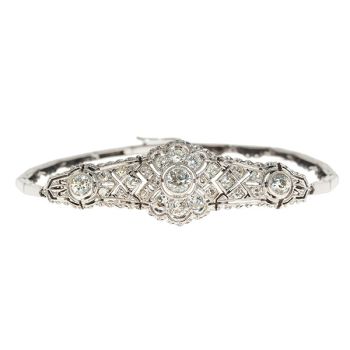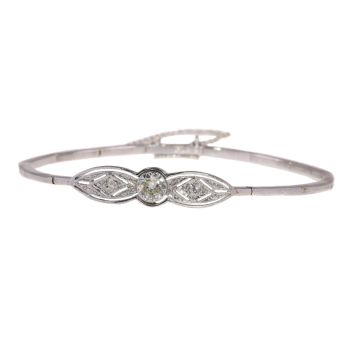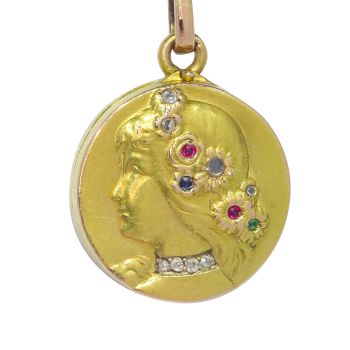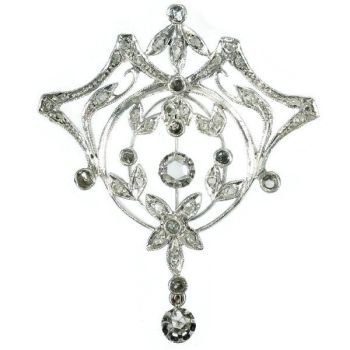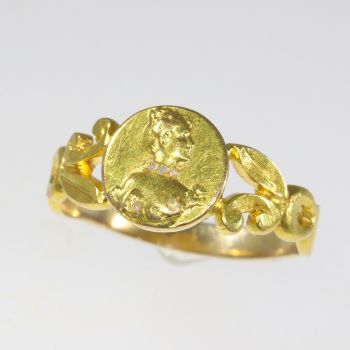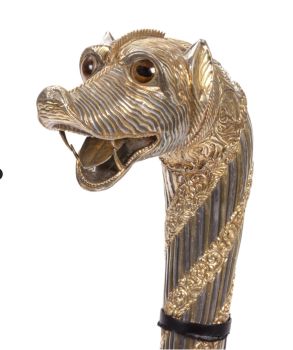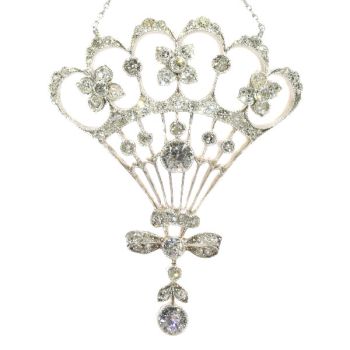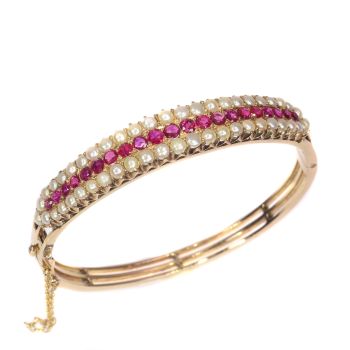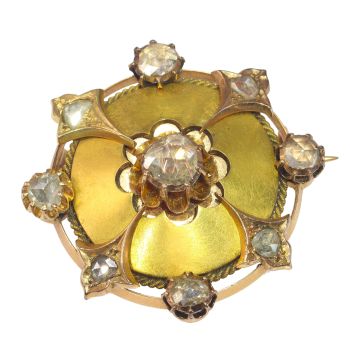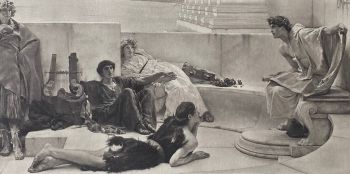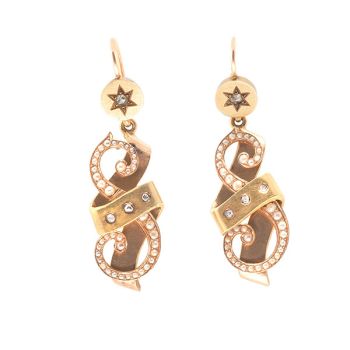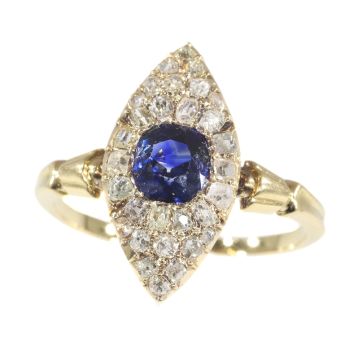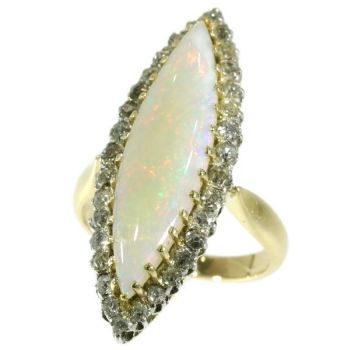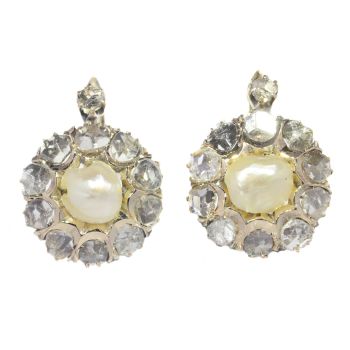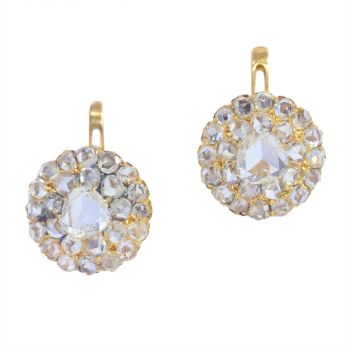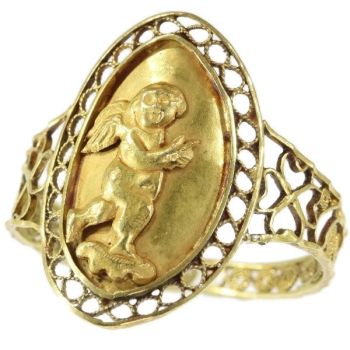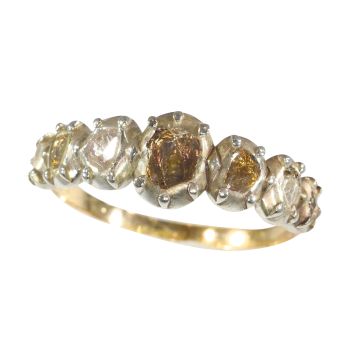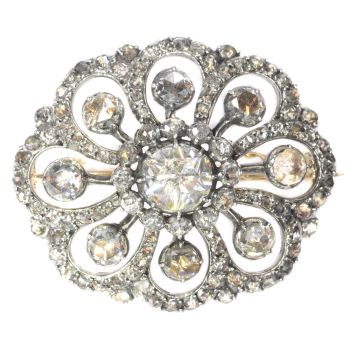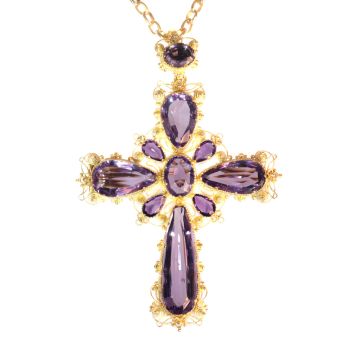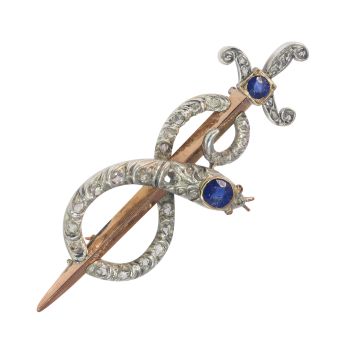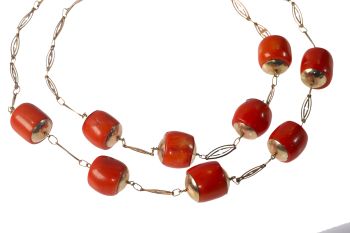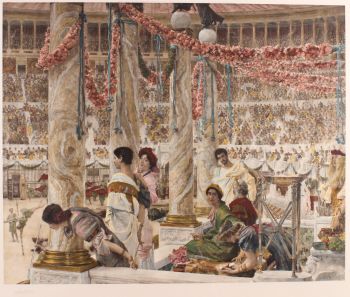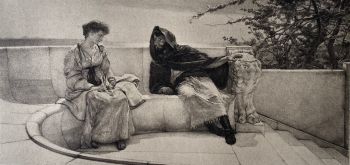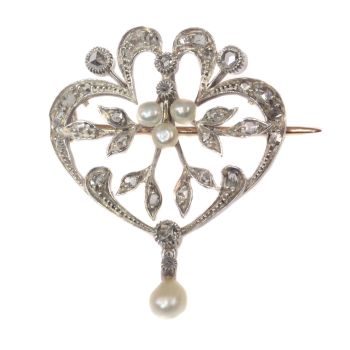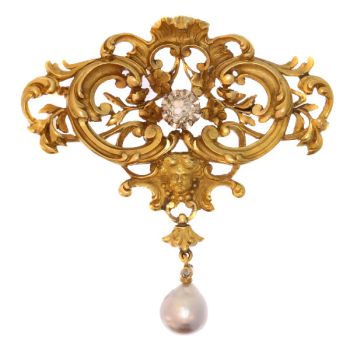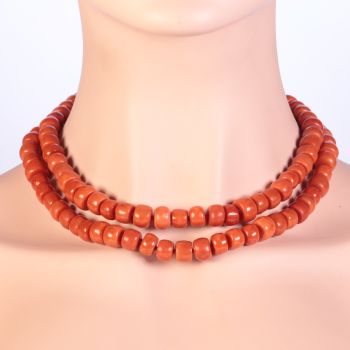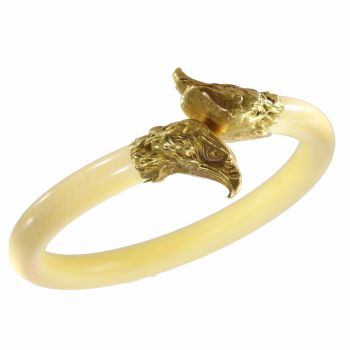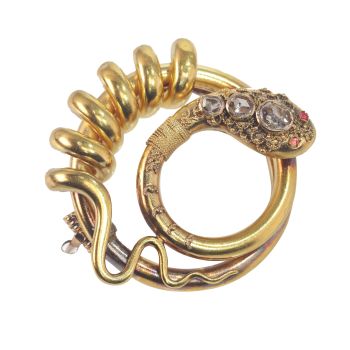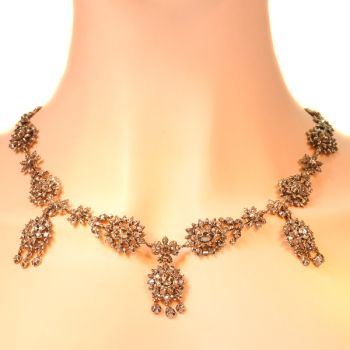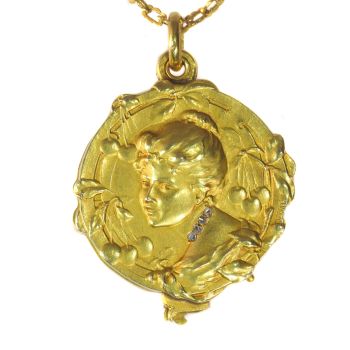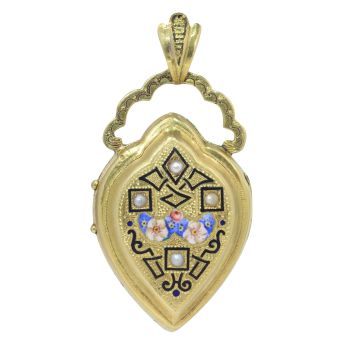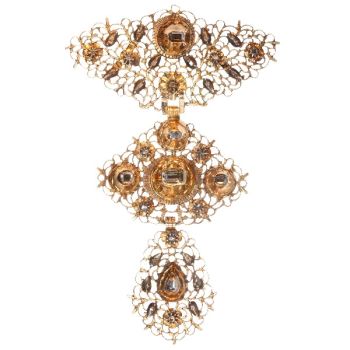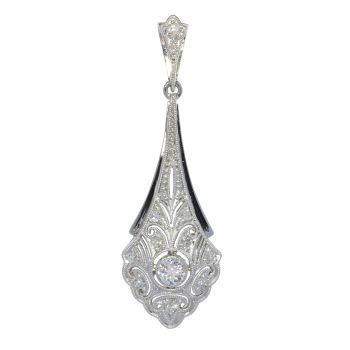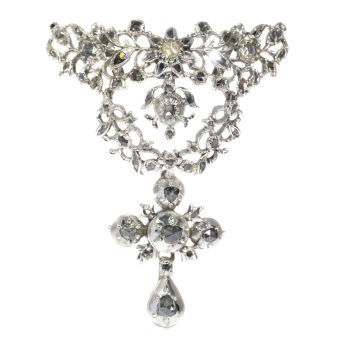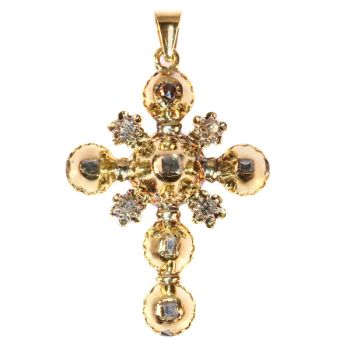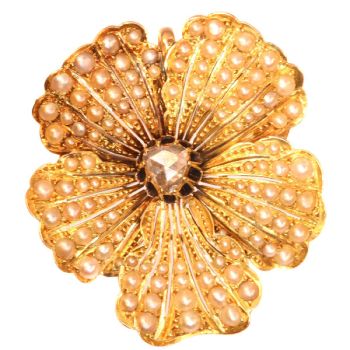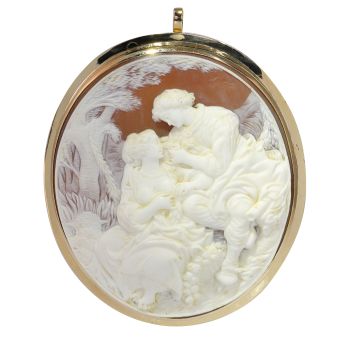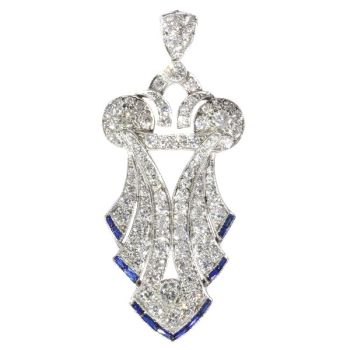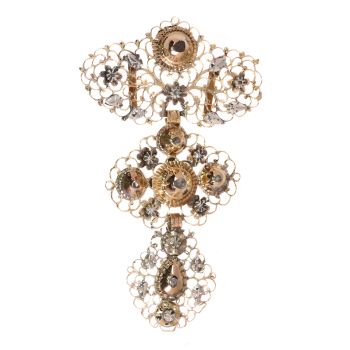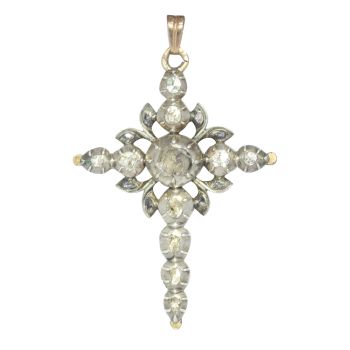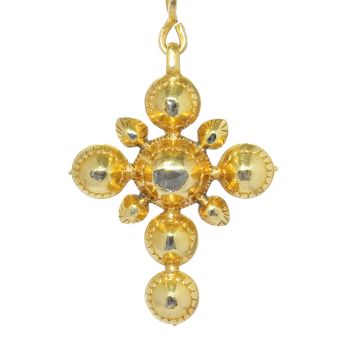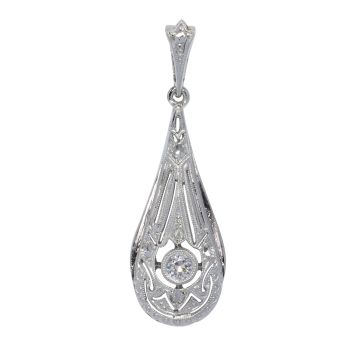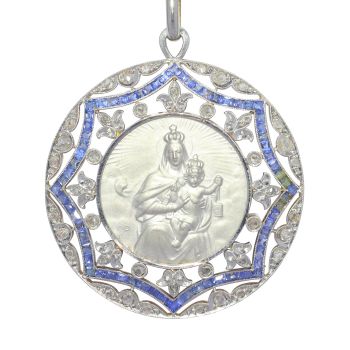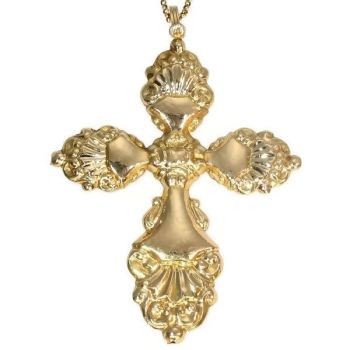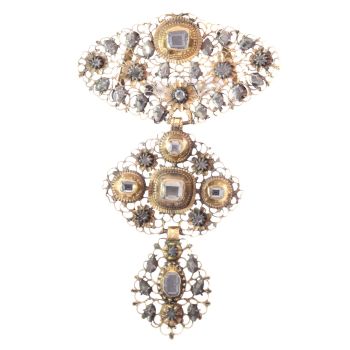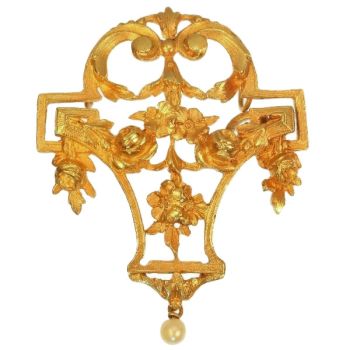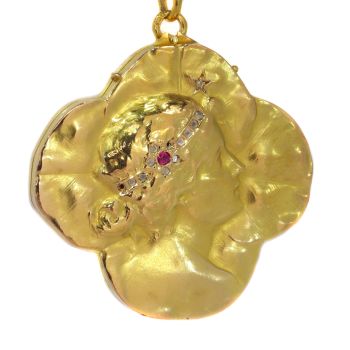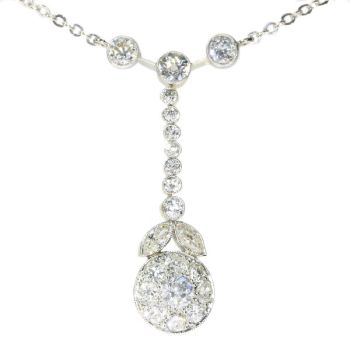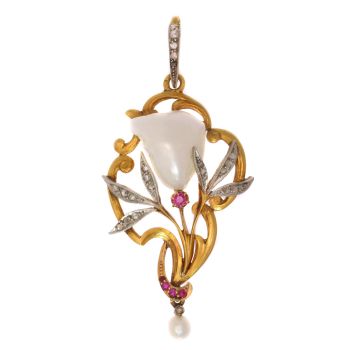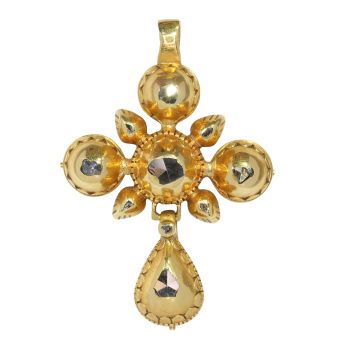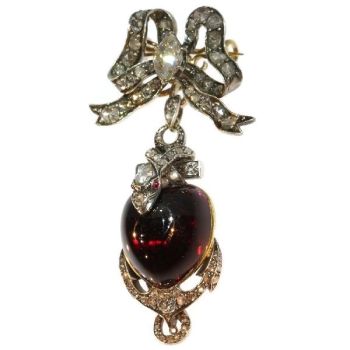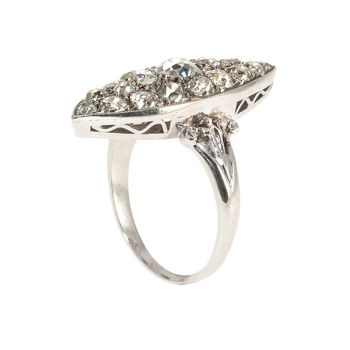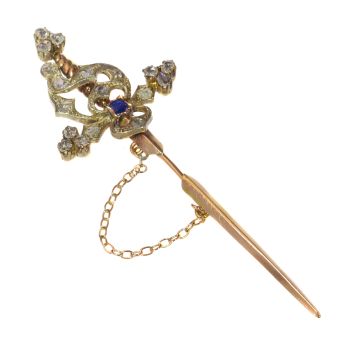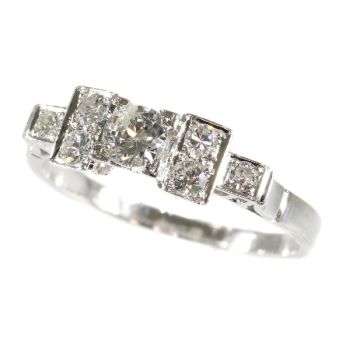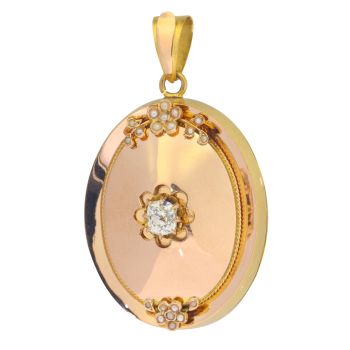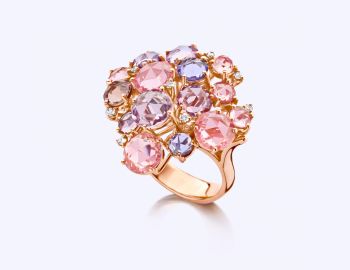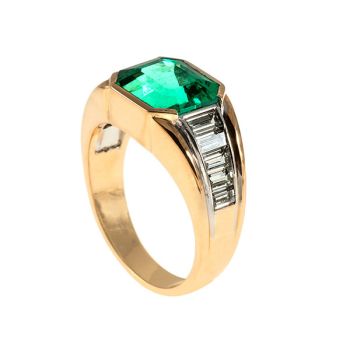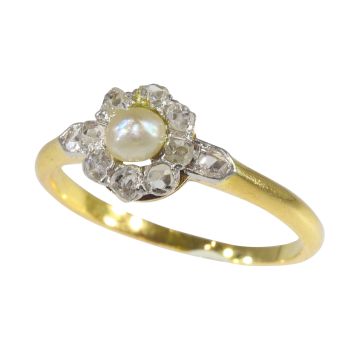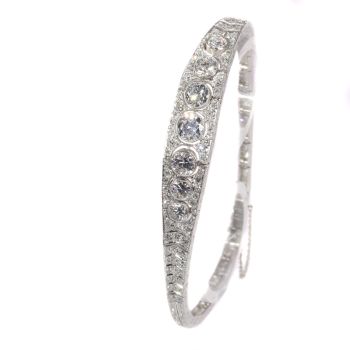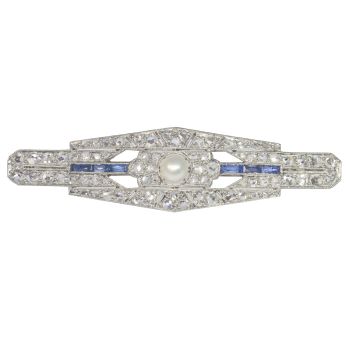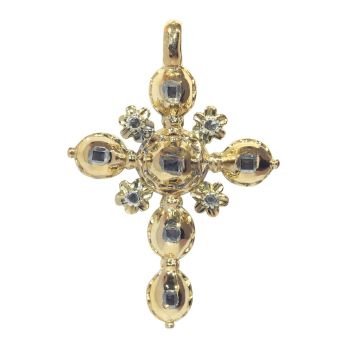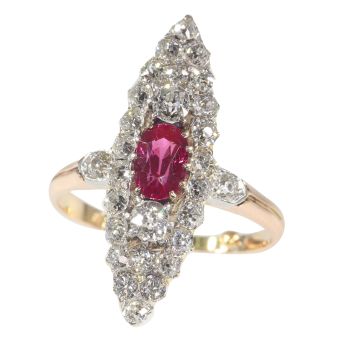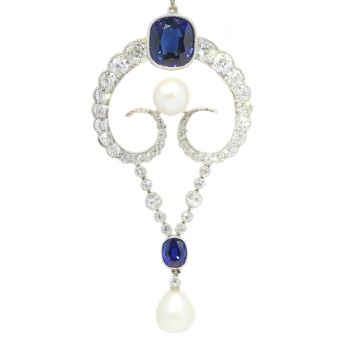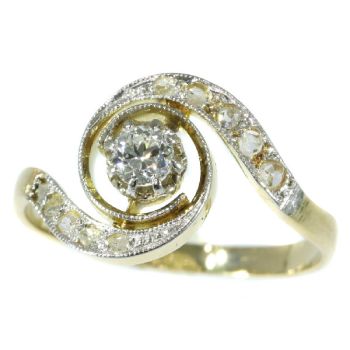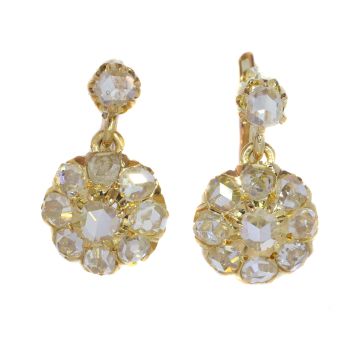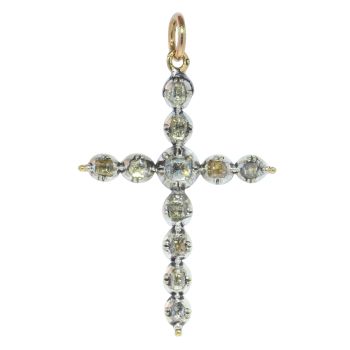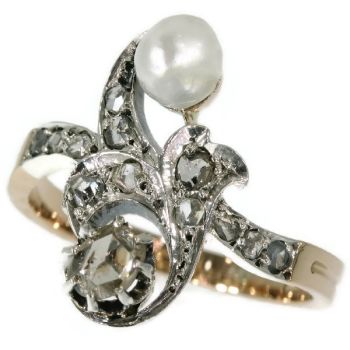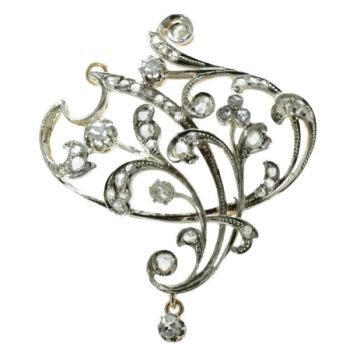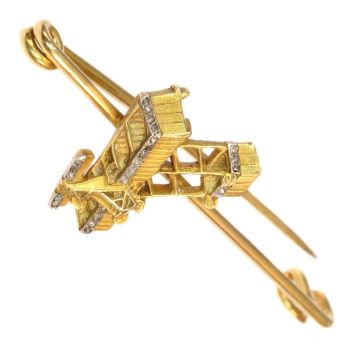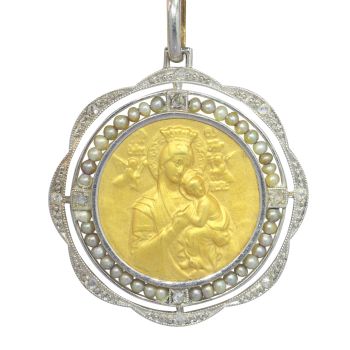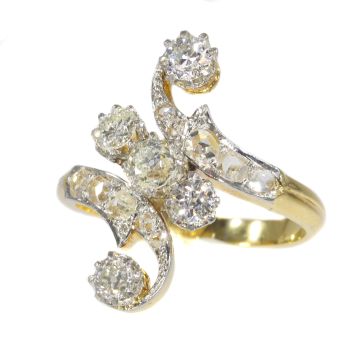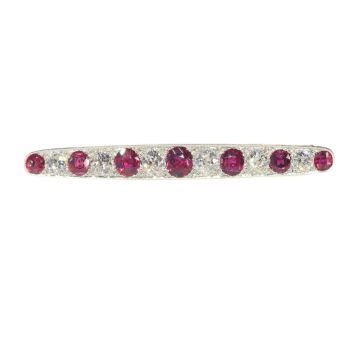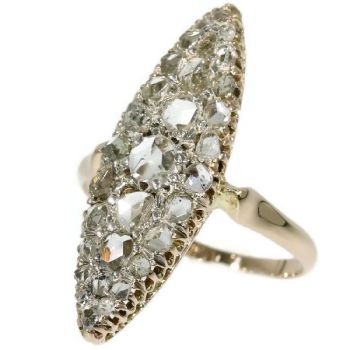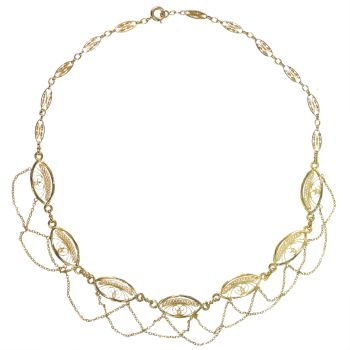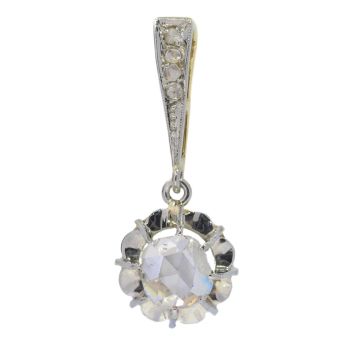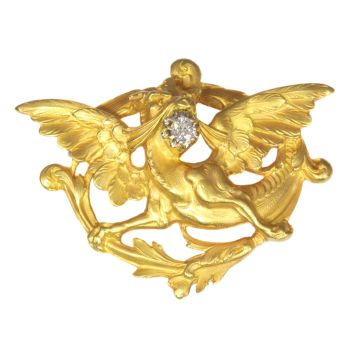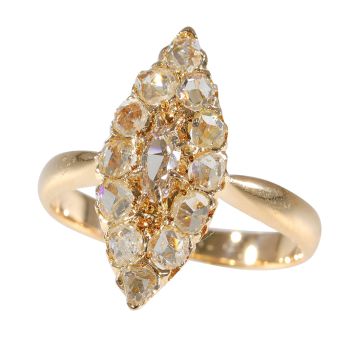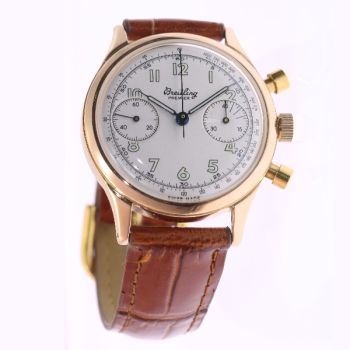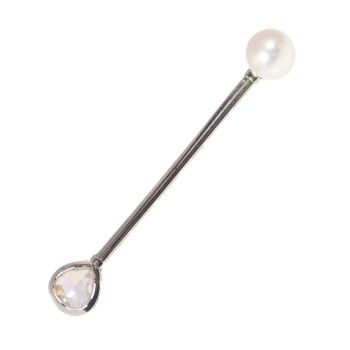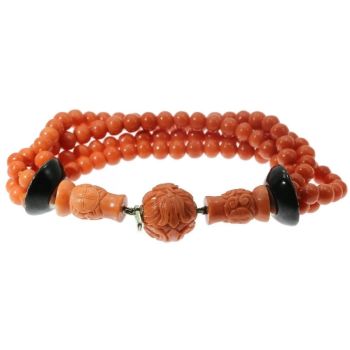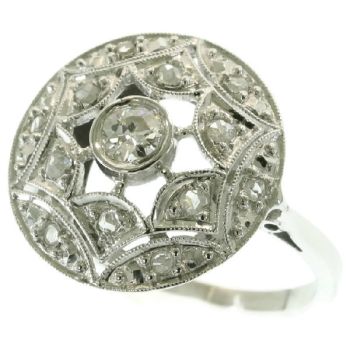Resplendent Heritage: A Victorian Diamond Pendant 1870
Artista Desconocido
DiamantePiedra preciosa
€ 12.000
Adin Fine Antique Jewellery
- Sobre la obra de arte
A paragon of Grand Victorian splendour, this circa 1870 pendant is an emblem of both opulence and conversation. Crafted from 18k red gold and silver, its focal point is a sumptuous 1.50ct rose cut diamond, a testament to the affluence of its originalowner. Surrounded by 56 additional diamonds, this brooch-pendant intertwines elegance with intrigue, igniting conversations and admiration. Its intricate design and rich history not only reflect the era's luxurious aesthetic but also encapsulate anenduring legacy of Victorian craftsmanship.
Antique jewelry object group
combined brooch-pendant
Condition
very good condition
more info on our condition scale
Country of origin
unknown
Style
Victorian - Victorian decorative arts refers to the style of decorative arts during the Victorian era. The Victorian era is known for its eclectic revival and interpretation of historic styles and the introduction of cross-cultural influences from themiddle east and Asia in furniture, fittings, and Interior decoration. Victorian design is widely viewed as having indulged in a regrettable excess of ornament. The Arts and Crafts movement, the aesthetic movement, Anglo-Japanese style, and Art Nouveaustyle have their beginnings in the late Victorian era.
See also: Victorian
more info on styles
Style specifics
The Grand Victorian Period - Experts divide the reign of Queen Victoria, also called The Victorian era (1837 - 1901) into three periods of about twenty years each; The Romantic Victorian Period (1837 - 1860), The Grand Victorian Period (1860 - 1880),and the Late or Aesthetic Victorian Period (1880 - 1901).
We consider this to be of the Grand Victorian Period.
This second Victorian period is famous for its ostentatious pieces set with pearls and diamonds (from South Africa). From ca. 1850 wealthy English had reported about jewelry from India and Japan, which heavily inspired the jewelers of this period. Thisperiod also corresponds with the death of Queen Victoria's husband King Albert making mourning jewelry (set with heavy dark stones) the type of jewelry specific for this period.
Period
ca. 1870
Events & facts of this era, poetry of this era, fashion of this era.
Material
18k red gold and silver, see also: The silver on gold technique (touchstone tested)
more info on precious metals
Technique
The rose cuts are set on foil. This is a special technique that was used to bring the lustre of the diamonds to its best quality.
Diamonds
One rose cut diamond. While we typically do not provide carat weight information for rose cut diamonds, the size of this central stone justifies a different approach. Therefore, for this particular stone, we estimate the carat weight to be approximatelywith an estimated weight of ± 1.50ct
56 rose cut diamonds and senailles. A senaille is a simplified rose cut diamond, a small diamond chip with perhaps a few polished facets. We do not have the weight of the rose cuts diamonds nor the senailles which is normal in our trade when it comes to rose cut diamonds and senailles.
The diamond weight we mention is approximate since stones are not removed from their mounts to preserve the integrity of the setting.
All diamonds we offer are screened by the I.J.G.C. for whether they are natural or synthetic, and all diamonds in this jewel are 100% guaranteed to be natural.
Birthstones
Diamond is the birthstone (or month stone) for April.
more info on birthstones
Hallmarks
No trace.
more info on hallmarks
Dimensions
height as pendant 6,28 cm (2,47 inch), width 3,08 cm (1,21 inch)
see picture with a ruler in millimeters and inches
Weight
20,90 gram (13,44 dwt)
Adin Reference Nº
23304-0153
Copyright photography
Adin, fine antique jewellery
Additional information
our latest acquisitions
jewelry glossary
wall of fame
visit us in Antwerp
subscribe to our mailinglist
- Sobre el artista
Puede suceder que un artista o creador sea desconocido.
Algunas obras no deben determinarse por quién está hecho o por (un grupo de) artesanos. Algunos ejemplos son estatuas de la Antigüedad, muebles, espejos o firmas que no son claras o legibles, pero también algunas obras no están firmadas en absoluto.
También puedes encontrar la siguiente descripción:
•"Atribuido a …." En su opinión, probablemente una obra del artista, al menos en parte.
•“Estudio de….” o “Taller de” En su opinión, una obra ejecutada en el estudio o taller del artista, posiblemente bajo su supervisión
•“Círculo de…” En su opinión, una obra del período del artista que muestra su influencia, estrechamente asociado con el artista pero no necesariamente su alumno.
•"Estilo de …." o “Seguidor de…”. En su opinión, una obra ejecutada al estilo del artista pero no necesariamente por un alumno; puede ser contemporáneo o casi contemporáneo
•"Manera de …." En su opinión una obra al estilo del artista pero de fecha posterior
•"Después …." En su opinión, una copia (de cualquier fecha) de una obra del artista
•“Firmado…”, “Fechado…” o “Inscrito” En su opinión, la obra ha sido firmada/fechada/inscrita por el artista. La adición de un signo de interrogación indica un elemento de duda.
•“Con firma…”, “Con fecha…”, “Con inscripción…” o “Lleva firma/fecha/inscripción” en su opinión la firma/fecha/inscripción ha sido añadida por alguien que no es el artista
¿Está interesado en comprar esta obra de arte?
Artwork details
Related artworks
Artista Desconocido
Couple Wooden Ancestors Sculptures with Scarifications, Zela People, DRC. 1920 - 1930
Precio a consultarSpectandum Gallery
Artista Desconocido
An Indian part-gilt silver-clad ceremonial sceptre or mace with a tiger’s head1850 - 1900
Precio a consultarZebregs & Röell - Fine Art - Antiques
 curada por
curada porDanny Bree
1 - 4 / 12Lawrence Alma-Tadema
"Caracalla and Geta: Bear Fight in The Coliseum, AD 203" 1907
Precio a consultarGallerease Selected
 curada por
curada porDanny Bree
1 - 4 / 24- 1 - 4 / 24
- 1 - 4 / 24
- 1 - 4 / 12









